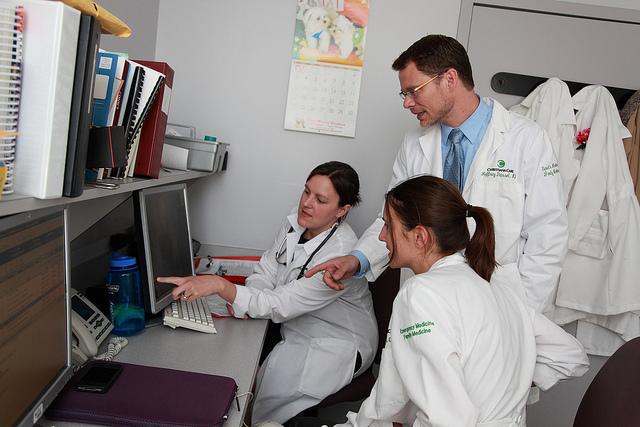Evolutionary Medicine as Burnout Prevention
Evolutionary Medicine as Burnout Prevention
“What is evolutionary medicine?” I hear the question so often that my response has become automatic. ”Evolutionary biology is a basic science that is essential for medicine,” I say, “just like genetics and embryology.”
The next question is nearly always, “How is it useful?" I trot out examples that show how evolutionary thinking can prevent antibiotic resistance, improve cancer chemotherapy and help doctors decide when it is safe to use drugs to block defenses like fever and cough. From there, conversations take off in wonderfully unpredictable directions. However, the second question from hospital directors is usually something like, “That is interesting, but how can evolutionary medicine save lives and money?”
In a recent lunch conversation, I was delighted to get a very different response from Steve Narang, CEO of Banner – University Medical center in Phoenix. Instead of making the usual demand for proof that evolution could make medicine better, faster, and cheaper, he said, "This is all just so interesting!" He went on to explain that one of the great challenges for health care leaders is to find ways to maintain their enthusiasm. He is acutely aware that budgets must be balanced, and committed to finding creative ways to do that. One of them is to create supportive workplaces that encourage curiosity and enthusiasm.
Finding ways to prevent burnout is a great challenge for care delivery systems. Many doctors feel beaten down by filling out electronic medical records, fighting with insurance companies, and trying to meet volume expectations, all on top of the hard work of taking care of patients. At a college reunion a decade ago, I was dismayed to find that half of my doctor-classmates had just left their practices, and others were actively looking for a way out. They were fed up with unreasonable expectations, and spending their time with paperwork instead of patients. Those who could were moving to administrative jobs that paid better and had no night call. Others left health care entirely. Burnout is costly for medical systems, not only financially, but for the quality of care. An evolutionary perspective is not about to solve this, but if it can help even a little bit that would be wonderful.
That’s why what Steve Narang articulated at lunch, something I have long known but have never quite had the nerve to say out loud, is so important. An evolutionary perspective can make the practice of medicine more meaningful and engaging. It is useful even aside from its ability to save lives and reduce suffering. I have devoted myself to evolution and medicine in large part because it is fascinating. Why pretend that all value has to be in dollars and cures? It is time to give an evolutionary perspective full credit for providing a deeper understanding that makes medicine more meaningful.
For decades, I used effective, evidenced-based treatments to help people with excess anxiety and depression. I knew what to do, but I did not know what I was doing. Only when I took an evolutionary view did I realize that these painful emotions are aversive for good evolutionary reasons. They exist because they have been useful. Selection shaped systems turn on anxiety and low mood whenever their benefits are greater than their costs, and that only costs a few minutes or calories. As a result, false alarms are normal and common. This “Smoke Detector Principle” helps to explain the unending flow of patients asking for help.
Every area of medicine can benefit from the deeper understanding an evolutionary perspective provides. Instead of just being frustrated by patients whose problems are related to aging, it helps to recognize that some genes for aging persist because they also give benefits early in life. Instead of just getting discouraged by the many patients with chronic pain, it helps to recognize why the pain system is especially vulnerable to dysregulation. Instead of assuming that people should always be sensible in their sexual behaviors, it helps to recognize that natural selection shaped mechanisms to maximize reproduction, not happiness or health. Instead of imagining that it's possible to reach all goals in life, it helps to recognize that we are constantly pulled towards large and conflicting goals, many of which cannot be achieved.
Our ASU Center for Evolution and Medicine is working hard to offer students and health care providers open access to education resources about how evolution can improve medical research and practice. EvMedEd offers many educational resources already, and we are building it fast. All are welcome at our Thursday talks and evening events. Our mission is to establish evolutionary biology as a basic science for medicine worldwide. While we emphasize how evolution can be practically useful for medicine, we also emphasize how evolution can make medical practice more meaningful and interesting.
We may have to do a proper controlled study. We could randomly assign professionals to an intervention group that learns evolutionary medicine, and compare them to a control group that carries on as usual! Would a one-week intensive course result in enduring increases in work satisfaction? We aim to offer such a course in the Spring of 2018. Join our mailing list to learn more.

